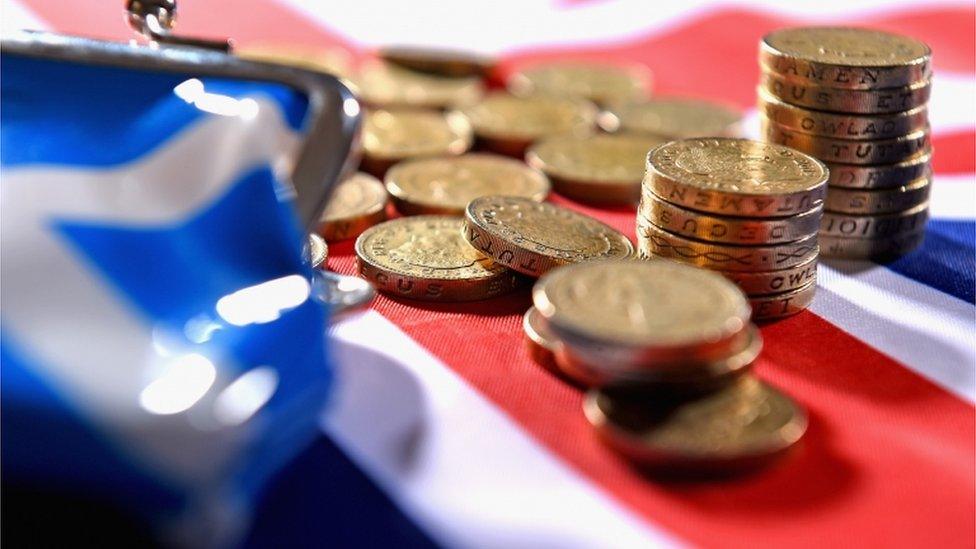Explainer: The new Scottish rate of income tax
- Published

From 1 April 2016 the Scottish Parliament will have responsibility for a Scottish Rate of Income Tax. Charlotte Barbour from the Institute of Chartered Accountants of Scotland explains what is set to happen.

What is the Scottish rate of income tax?
"We already have land and buildings transaction tax (stamp duty) which is completely within the powers of the Scottish Parliament. As of next April, this Scottish rate of income tax will come in. Now this is a partially devolved power, and I say that because it is a rate that the Scottish Parliament can set, but that rate will sit in the UK income tax rate.
"So the powers will be such that the UK rate will be reduced by 10p in the pound across all bands, across the 20% band, the 40% band and the 45% band. It will rest with the Scottish Parliament to set its own rate to replace that."

Who will it affect?
"It will fall to Scottish tax payers and a Scottish tax payer is based on where you live. So for the vast majority of people it will be the main residence. HMRC have done a great deal of work behind the scenes so far and later this autumn will be writing to people who they consider will be Scottish taxpayers based on their addresses and saying we think you are a Scottish tax payer - you will be liable to pay the Scottish rate of income tax.
"These letters haven't been sent out yet because I think it has been decided it is best to wait until the actual rate has been announced."

Will the Scottish rate stay the same as the UK rate?
"That's a really important point because the previous powers under the 1998 Act for the Scottish Variable Rate were optional powers which the Scottish Parliament could or could not have exercised. As we know they didn't ever exercise them and that was deemed to be a failure in some respects by the Calman Commission.
"What we are getting now with the Scottish rate of income tax is being recommended by the Calman Commission to address that issue. So what will happen is that 10p in the pound will be taken out of the budget - the Barnett Formula will be adjusted to take account of all that tax coming out and the Scottish Parliament will set its own rate. This rate could easily be like the rest of the UK. On the other hand they could set a lower rate, they could set a higher rate."

If Scottish rates were different, could this create tax competition?
"You do have an element of tax competition, say with encouraging inward investment. But I think with income tax the majority of people probably are relatively static. So you don't have as much competition there as you would say with something like corporation tax."

Who will administer the devolved tax?
"One of the reasons we are having a Scottish rate within a UK income tax is to maintain the administration. Income tax will continue to be administered by HMRC, it is not Revenue Scotland that will be dealing with it.
"Employers will continue to collect payroll because PAYE is a payroll tax and the vast bulk of income tax is collected through that. But employers have little direct responsibility other than operating with 'S' codes which is what a Scottish tax payer will get.
"But it is not the role of the employer to identify Scottish people, that is HMRC's duty."